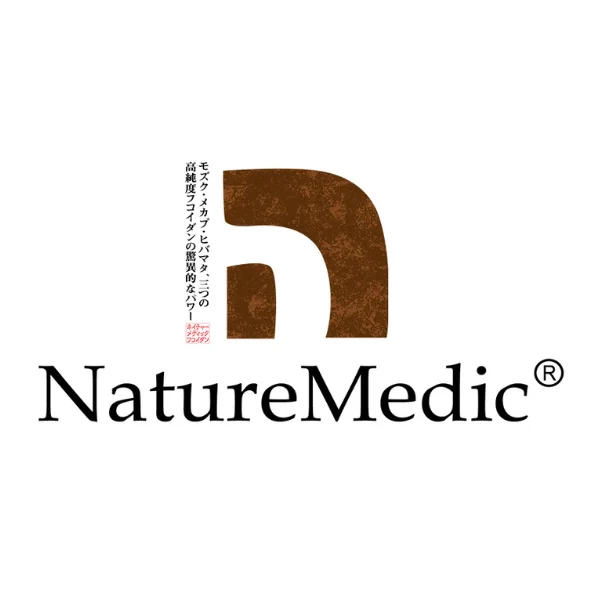Single-use insulin pens modified Brian Brandell’s life.
Rising up with Sort 1 diabetes within the Seventies, he needed to carry glass syringes and vials of insulin wherever he went. So in 1985, when Novo Nordisk debuted a disposable prefilled pen that mixed a number of doses of treatment with a syringe, Dr. Brandell readily adopted the brand new gadget.
“They had been a godsend,” he recalled.
However extra lately, he started weighing the consequences of all of the plastic within the pens he had thrown away through the years, and the potential hurt to individuals and his environment.
“I’m utilizing this lifesaving product,” he mentioned with frustration, “however to ensure that me to make use of it, I’ve bought to be keen to wreck the surroundings.”
It’s no secret that the world has a plastic downside. The versatile, sturdy and low-cost materials is clogging the world’s oceans, leaching toxins into its biomes and contributing to local weather change. Some nations have been drafting a treaty proposal which may ban choose single-use merchandise and set objectives for decreasing plastics manufacturing worldwide. However negotiations have snagged over opposition from the fossil gasoline and chemical industries.
Worldwide, the well being care business used greater than 24 billion kilos of plastic in 2023, and is forecast to generate 38 billion kilos yearly by 2028, in accordance with BCC Analysis, a world market analysis agency.
Usually manufactured from fossil fuels, plastic can be a serious supply of greenhouse fuel emissions. In america, the well being sector accounts for eight p.c of the nation’s carbon footprint.
Medical gadget corporations say they’re making an attempt to scale back the waste, whether or not by recovering and recycling merchandise, reducing the quantity of plastic in units and the packaging, or by redesigning objects with supplies that aren’t petroleum-based.
For the common individual, essentially the most seen well being care detritus are disposable apparatuses used at dwelling, from respiratory inhalers to syringes to tampon applicators to oxygen masks and tubing.
Mitch Ratcliffe, the writer of Earth911, a web site containing an unlimited database of U.S. recycling amenities, mentioned there was little hope of recycling this stuff proper now. That’s partially resulting from their irregular measurement, security issues that non-sterile components might unfold illness, and since they’re typically composed of supplies that may’t be processed collectively. “We now have an extremely complicated economic system filled with intricately designed stuff. We simply by no means considered taking it aside once more.”
Few units are extra ubiquitous than insulin pens. A couple of third of the 37 million Individuals with diabetes handle the illness with insulin, in accordance with the Facilities for Illness Management and Prevention.
Novo Nordisk alone manufactured 750 million insulin pens in 2021, fabricated from greater than 28 million kilos of plastic. The pens embody a glass vial in a plastic body, and will not be designed to be disassembled into components for the aim of recycling. Almost all are believed to finish up within the family trash.
Dr. Brandell, of Oregon Metropolis, has been making an attempt to do one thing in regards to the discarded units. A biomedical engineer, he spent his profession growing pacemakers, defibrillators and catheters. Semi-retired in 2021, he labored with a companion to design a hand-held gadget that neatly cuts the insulin pens in order that they are often taken aside. It additionally works on the plastic dispensers for Ozempic, the diabetes drug that hundreds of thousands of individuals are actually taking for weight reduction.
However Dr. Brandell conceded that dismantling the pens was simply step one. The plastic within the pens is top of the range, however not a sort simply processed by municipal recycling websites. It could in all probability get bundled with different plastics and will nonetheless wind up in a landfill or incinerator.
He’s additionally exploring whether or not his gadget, additionally fabricated from plastic, might be manufactured with bamboo or one other sustainable materials. “It’s fairly arduous to promote any person on the concept I need you to purchase this plastic gadget so it can save you some plastic,” he mentioned.
World biomedical giants are going through growing public strain to vary the life cycle of their merchandise. Novo Nordisk has mentioned that it deliberate to revamp its merchandise to satisfy a objective of internet zero emissions by 2045.
That’s a shift from the corporate’s historical past, when disposability was a fascinating comfort. “No person considered designing it for circularity, or fascinated by the fabric that we must always use, or limiting the thickness of the plastic,” mentioned Katrine DiBona, an organization vp.
In 2020 the corporate began a program in three Danish cities to recycle used insulin pens. It offered pharmacists with assortment luggage to present to sufferers choosing up prescriptions, who might then return the used units on the following go to. Then a third-party recycling firm collected the pens for disassembly, sterilization and processing.
Novo Nordisk has since expanded this system nationwide and opened it as much as its rivals, and begun pilot efforts in the UK, France and Brazil. However public habits is tough to change. By the top of 2023, solely 21 p.c of the corporate’s pen customers in Denmark had returned units.
GSK, which sells greater than 200 million respiratory inhalers a 12 months, bumped into related issues with a take-back scheme for the units in the UK from 2011 to 2020. The inhalers’ plastic elements are recyclable by most curbside assortment packages, however the aluminum canisters containing the treatment will not be. So the corporate collected used units at pharmacies, recycled the elements that it might, and incinerated the remaining.
This system by no means generated a lot curiosity from shoppers, nonetheless. Over 9 years, solely 24,000 kilos of plastic had been recovered from the inhalers, which Claire Lund, the corporate’s vp for sustainability, referred to as “completely minuscule” compared to the roughly 5 million kilos of plastic wanted to provide the inhalers every year.
Of extra concern to environmentalists is the propellant in lots of inhalers, sometimes a fluorinated fuel that could be a extra highly effective driver of world warming than carbon dioxide. In 2021, GSK started growing a substitute, which Ms. Lund prompt might considerably cut back carbon emissions.
However the firm continues to be operating exams on the brand new formulation, and anticipates that it’s going to take years to acquire approval of the alternative within the 140 markets the place the prevailing ones are bought.
Ms. Lund mentioned the corporate had toyed with making a reusable product. “It’s been on the desk so many instances after which kicked again,” she mentioned.
In distinction to Novo Nordisk’s boutique deal with recovering materials from a selected product, the U.S. waste administration firm Triumvirate Environmental is in search of business functions for repurposed medical waste.
In 2014, the corporate bought equipment from a plastic lumber enterprise and grafted it onto the again of a medical waste plant in Jeannette, Pa., with the concept of changing some refuse into helpful merchandise.
John McQuillan, the corporate’s chief government, mentioned that the plant, after $70 million in funding, was receiving waste from hospitals and pharmaceutical corporations — “a few of the most disgusting stuff on the face of the planet” — and processing it by way of a fancy set of machines.
A lot of the waste continues to be incinerated, however objects composed of helpful plastics, together with containers full of syringes and surgical instruments wrapped in packaging, are recognized, shredded and transformed into constructing supplies.
“It’s like a smelly Willy Wonka,” he mentioned.
The method is six to eight instances costlier than bulldozing the waste right into a gap within the floor, Mr. McQuillan estimated, though Triumvirate recoups some prices from the sale of the ultimate merchandise.
There isn’t a lack of curiosity from well being care corporations, which offer way more plastic waste than the Triumvirate plant can course of. The speed-limiting issue, as an alternative, is demand for the structural plastic lumber they produce, which is utilitarian and has to compete with options produced from low-cost plastics. “It is available in no matter colour you need, as long as it’s black, and as long as your definition of black is fairly liberal,” Mr. McQuillan mentioned.
Nonetheless, in 2022 Triumvirate bought 12 million kilos of the stuff, together with to Menards and House Depot, which promote it for landscaping and as underlay for turf fields.
Like most recycling, the method is vitality intensive. The plant primarily receives plastic waste from clients within the northeastern United States, as a result of the supplies are usually loosely packed, so they’re costly to move lengthy distances.
Scientists level out that this expenditure of vitality almost eliminates the environmental advantages. Recycling a product sometimes recovers lower than 10 p.c of its carbon footprint, in accordance with Dr. Andrea MacNeill, founding father of the Planetary Healthcare Lab on the College of British Columbia, as a result of most of a product’s environmental impression happens throughout its manufacture. “We’re by no means going to recycle our solution to a wholesome planet,” she mentioned.
It was way more necessary that producers design merchandise able to years of reuse, she mentioned, including that this is able to require reworking their enterprise fashions, too. “Proper now, their revenue margin relies on high-volume consumption.”
The following advances in sustainable medical gadget design would possibly happen within the stocky brick and glass headquarters of Battelle, a nonprofit analysis and growth institute in Columbus, Ohio. Though the group primarily handles yearslong tasks for the U.S. army and the Division of Power, a whole bunch of employees members work with name-brand medical corporations to revamp their merchandise.
The medical units group dominates a complete ground of 1 constructing. Some scientists there try to show soybeans into usable plastics that may very well be substituted for conventional petroleum-based ones. Others are utilizing massive stainless-steel reactors to review how the substances degrade.
Erik Edwards, certainly one of Battelle’s principal supplies scientists, mentioned that the Meals and Drug Administration’s evaluate course of for brand new units has led the group to tweak current merchandise slightly than suggest wholesale adjustments. For instance, they’re serving to a drug firm redesign an insulin gadget to take away a single disposable plastic half. “The method that you just take is extra of a thousand small steps,” he mentioned.
Enhancing packaging may very well be low-hanging fruit, he mentioned. A number of years in the past, the lab acquired an order of palm-size medical units, they usually arrived in a number of pallets price of packing containers. “There was all this delivery of air that had been completed simply because the packaging took up extra room than it wanted to,” he recalled.
Mr. Edwards mentioned Battelle’s shoppers usually want adjustments that cut back prices or enhance efficiency, however sustainability was changing into extra of an element.
Grace Lillie, a mechanical engineer, in contrast the evolution to adjustments within the methods milk was bought over time. Folks as soon as retrieved glass bottles from their doorstep and returned empty ones for reuse, however the introduction of disposable plastic jugs eradicated the career of the milkman. Lowering reliance on plastic could imply resurrecting some processes and roles.
“You need individuals to do one thing completely different, however then it’s important to depend on the tradition to regulate,” she mentioned.




